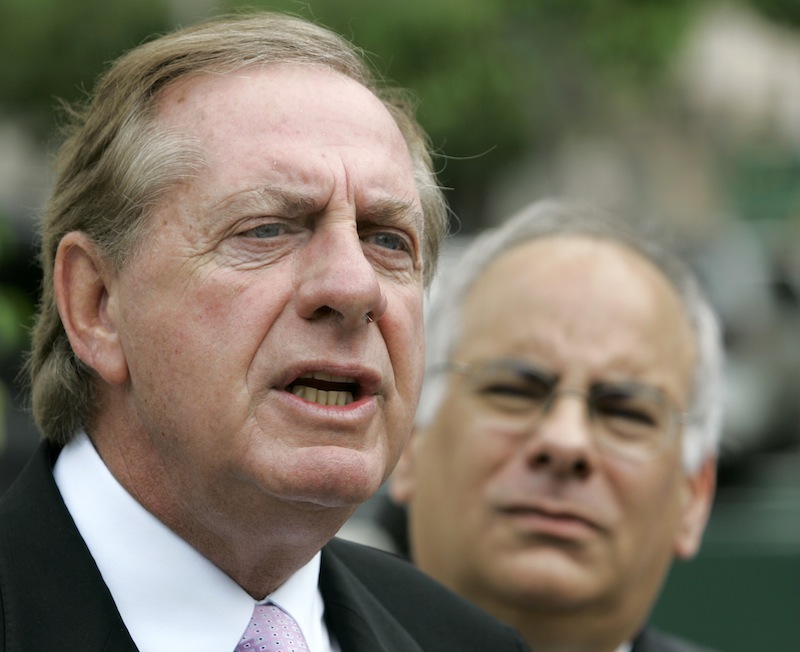There are photos of the suspect at the bomb scene, video footage of him dropping a knapsack at the site of one of the blasts, and perhaps most incriminating could be the written words of Dzhokhar Tsarnaev himself during questioning in a Boston hospital. A case with evidence like this may be the toughest challenge a lawyer can face: defending someone accused of an act of terror so horrific a nation cries out for swift, severe punishment.
Attorneys who handle terrorism and other notorious cases say public opinion is stacked against the defense for obvious reasons. Acts of terrorism unleash an outpouring of anger from the public, including potential jurors. In Boston, the circumstances are especially egregious: Three people, including an 8-year-old boy, died in the twin blasts, more than 260 were injured, and a Massachusetts Institute of Technology police officer was later fatally shot.
Some lawyers say that in this case, the surveillance evidence and a police shootout make a “he wasn’t there” innocence claim untenable — and keeping Tsarnaev out of the execution chamber may itself be a triumph.
“The reality is you just try to save his life,” said Thomas A. Durkin, a Chicago lawyer who has defended several terrorism suspects, including Ramzi bin al Shibh, one of the alleged plotters in the 9/11 attacks now being held in Guantanamo.
Durkin said there are several steps the defense can take: Hire top-notch investigators, look for possible psychiatric issues or brain damage and scour for potential vulnerabilities in how the government collected evidence. But he said the biggest hurdles for lawyers, clearly, are the bombings and the ensuing horror.
“It’s just an unspeakable crime,” Durkin said. “It strikes at the heart of a free society. It strikes fear into everyone. It’s just an awful, awful situation — people standing, watching a race one second and having no feet after that. I can’t imagine worse evidence.”
Frank Rubino, a Miami defense attorney who represented former Panamanian dictator Manuel Noriega on drug conspiracy charges, agreed it wouldn’t make sense to deny the younger Tsarnaev’s involvement, but attorneys could try to spare his life by focusing on his age — 19 — and possible coercion by his older brother, Tamerlan, 26, who was killed Friday in a fierce police shootout.
“To take this case to trial and argue that he didn’t plant the bomb and someone else did it would be futile,” Rubino said in an email. “The evidence of both flight from the police and the shootout will come in evidence as ‘consciousness of guilt.’ How can one explain that conduct? Innocent people don’t throw bombs at the cops, shoot it out with the cops and hide.”
Tsarnaev was charged Monday with using a weapon of mass destruction to kill in the April 15 bombings. He could face the death penalty if convicted. He was questioned in his Boston hospital room by a special interrogation team for high-value suspects.
Two U.S. officials said preliminary evidence from that interrogation suggests the brothers were motivated by religious extremism but apparently were not involved with Islamic terrorist groups. Tsarnaev communicated with his interrogators in writing, according to the officials, who spoke on condition of anonymity because they were not authorized to discuss the investigation publicly.
An FBI affidavit released Monday reveals incriminating evidence against Tsarnaev, including surveillance-camera footage that shows him raising his mobile phone to his ear just before the two blasts. After the first explosion, a block away, as the horrified crowd turned in that direction, he appeared calm. He then quickly walked away, leaving a knapsack on the ground. About 10 seconds later, the FBI said, a bomb blew up where he’d been standing.
Authorities also have said they found a “large pyrotechnic” and BB pellets during a search of his dorm room at the University of Massachusetts at Dartmouth on Sunday. Among the shrapnel that struck victims were BBs.
It’s far too soon to say what defense strategy Tsarnaev’s lawyers will use. The federal public defender for Massachusetts, Miriam Conrad, has been appointed to represent him. Conrad is expected to be the lead attorney, but the office will bring in at least one, if not two lawyers, with death penalty experience.
Thomas H. Dupree Jr., a Washington, D.C., lawyer, says in most cases with so much evidence, the defense might consider an insanity defense, but that would be very difficult here. “This appears to be a carefully calculated, malevolent plot,” he said.
Without that option, he said the defense could seek to enter a guilty plea in a deal to avoid the death penalty. “They may make the argument that he was not the ringleader and was under the spell of his brother,” Dupree said. “I don’t know how successful that would be.”
The focus now should be on gathering the facts, he said. “If you’re his lawyer you want to find out if there are any mitigating circumstances that might change the public view of him,” Dupree added. “If the facts turn out to be what we see now, their focus should be on saving his life.”
Send questions/comments to the editors.



Success. Please wait for the page to reload. If the page does not reload within 5 seconds, please refresh the page.
Enter your email and password to access comments.
Hi, to comment on stories you must . This profile is in addition to your subscription and website login.
Already have a commenting profile? .
Invalid username/password.
Please check your email to confirm and complete your registration.
Only subscribers are eligible to post comments. Please subscribe or login first for digital access. Here’s why.
Use the form below to reset your password. When you've submitted your account email, we will send an email with a reset code.